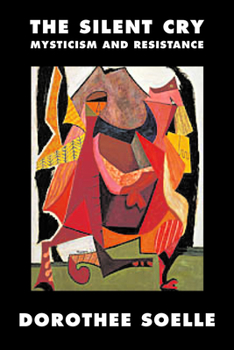The Silent Cry: Mysticism and Resistance
Select Format
Select Condition 
Book Overview
Exploring the religious impulse known as mysticism - the "silent cry" at the heart of all the world's religions. Mysticism, in the sense of a "longing for God," has been present in all times, cultures, and religions. But Soelle believes it has never been more important than in this age of materialism and fundamentalism. The antiauthoritarian mystical element in each religion leads to community of free spirits and resistance to the death-dealing aspects of our contemporary culture. Religion in the third millennium, Soelle argues, either will be mystical or it will be dead. Therefore, Soelle identifies strongly with the hunger of New Age searchers, but laments the religious fast food they devour. Today, a kind of "democratized mysticism" of those without much religious background flourishes. This mystical experience is not drawn so much of the tradition as out of contemporary experiences. In that sense, each of us is a mystic, and Soelle's work seeks to give theological depth, clarity, and direction. This, her magnum opus, conjoins Soelle's deep religious knowledge and wisdom with her passion for social justice into a work destined to be a classic of religious literature.
Format:Paperback
Language:English
ISBN:0800632664
ISBN13:9780800632663
Release Date:April 2001
Publisher:Augsburg Fortress Publishing
Length:336 Pages
Weight:1.18 lbs.
Dimensions:0.7" x 6.0" x 9.1"
Customer Reviews
1 rating
A wonderful farewell gift
Published by Thriftbooks.com User , 21 years ago
Dorothee Soelle's "The Silent Cry" appeared shortly before her death, and it's a fitting swansong for a theologian who spent her entire life exploring and living the intersections between action and contemplation. Her exploration of mysticism accomplishes three goals. In the first section of the book, Soelle works out a general definition of mysticism, arguing that it is a sensibility all of us possess even though it's rarely appreciated (much less cultivated) by either society or institutionalized religion. Her reflections (chapter 4) on mysticism's essentially uncommunicable insights into God and reality, and hence its search for a "new language," are particularly good. In the second section of the book, she explores five foci of mystical experience: nature, erotic love, suffering, community, and joy. Each of these contexts can birth awareness of the Beyond that is also Present. The chapter on eroticism is especially insightful. But it's in the third section that Soelle comes into her own and offers truly original and masterful work. Here she argues at great length for the thesis that mysticism isn't at all a private, individualistic mode of experience, but in fact is a mode of social resistance and liberation. Her position might be called "liberation mysticism." Of particular interest are her discussions of voluntary simplicity and nonviolence.All in all, a fantastic book. It's a very nice complement indeed to Evelyn Underhill's classic study. Thanks, Dorothee!





